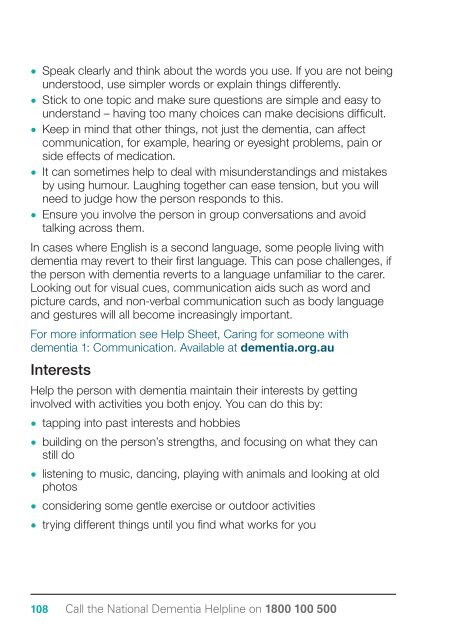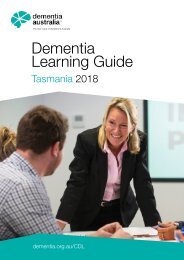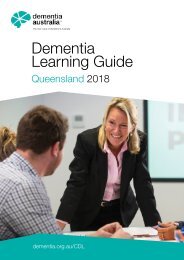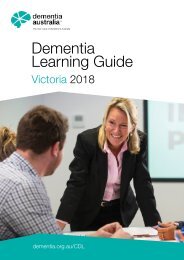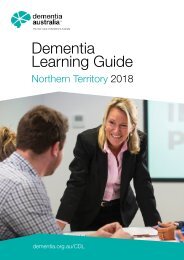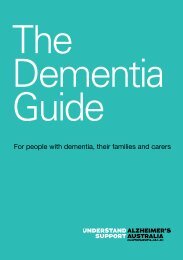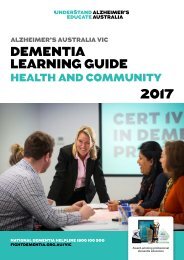Dementia Australia | The Dementia Guide
The Guide will also be used by the family and friends of someone with dementia, as it will contain information for anyone taking on a caring role. It will help people to understand more about dementia and the emotional impact of a diagnosis, the available drug treatments, and support and services that are available. It will include information about living well with dementia and about making plans for the future.
The Guide will also be used by the family and friends of someone with dementia, as it will contain information for anyone taking on a caring role. It will help people to understand more about dementia and the emotional impact of a diagnosis, the available drug treatments, and support and services that are available. It will include information about living well with dementia and about making plans for the future.
Create successful ePaper yourself
Turn your PDF publications into a flip-book with our unique Google optimized e-Paper software.
• Speak clearly and think about the words you use. If you are not being<br />
understood, use simpler words or explain things differently.<br />
• Stick to one topic and make sure questions are simple and easy to<br />
understand – having too many choices can make decisions difficult.<br />
• Keep in mind that other things, not just the dementia, can affect<br />
communication, for example, hearing or eyesight problems, pain or<br />
side effects of medication.<br />
• It can sometimes help to deal with misunderstandings and mistakes<br />
by using humour. Laughing together can ease tension, but you will<br />
need to judge how the person responds to this.<br />
• Ensure you involve the person in group conversations and avoid<br />
talking across them.<br />
In cases where English is a second language, some people living with<br />
dementia may revert to their first language. This can pose challenges, if<br />
the person with dementia reverts to a language unfamiliar to the carer.<br />
Looking out for visual cues, communication aids such as word and<br />
picture cards, and non-verbal communication such as body language<br />
and gestures will all become increasingly important.<br />
For more information see Help Sheet, Caring for someone with<br />
dementia 1: Communication. Available at dementia.org.au<br />
Interests<br />
Help the person with dementia maintain their interests by getting<br />
involved with activities you both enjoy. You can do this by:<br />
• tapping into past interests and hobbies<br />
• building on the person’s strengths, and focusing on what they can<br />
still do<br />
• listening to music, dancing, playing with animals and looking at old<br />
photos<br />
• considering some gentle exercise or outdoor activities<br />
• trying different things until you find what works for you<br />
108 Call the National <strong>Dementia</strong> Helpline on 1800 100 500


